第282章 CHAPTER XXXVI(4)
The man who has in recent times carried out most energetically the policy of protecting and fostering native industries is M. Witte, a name now familiar to Western Europe. An avowed disciple of the great German economist, Friedrich List, about whose works he published a brochure in 1888, he held firmly, from his youth upwards, the doctrine that "each nation should above all things develop harmoniously its natural resources to the highest possible degree of independence, protecting its own industries and preferring the national aim to the pecuniary advantage of individuals." As a corollary to this principle he declared that purely agricultural countries are economically backward and intellectually stagnant, being condemned to pay tribute to the nations who have learned to work up their raw products into more valuable commodities. The good old English doctrine that certain countries were intended by Providence to be eternally agricultural, and that their function in the economy of the universe is to supply raw material for the industrial nations, was always in his eyes an abomination--an ingenious, nefarious invention of the Manchester school, astutely invented for the purpose of keeping the younger nations permanently in a state of economic bondage for the benefit of English manufacturers. To emancipate Russia from this thraldom by enabling her to create a great native industry, sufficient to supply all her own wants, was the aim of his policy and the constant object of his untiring efforts. Those who have had the good fortune to know him personally must have often heard him discourse eloquently on this theme, supporting his views by quotations from the economists of his own school, and by illustrations drawn from the history of his own and other countries.
A necessary condition of realising this aim was that there should be high tariffs. These already existed, and they might be raised still higher, but in themselves they were not enough. For the rapid development of the native industry an enormous capital was required, and the first problem to be solved was how this capital could be obtained. At one moment the energetic minister conceived the project of creating a fictitious capital by inflating the paper currency; but this idea proved unpopular. When broached in the Council of State it encountered determined opposition. Some of the members of that body, especially M. Bunge, who had been himself Minister of Finance, and who remembered the evil effects of the inordinate inflation of the currency on foreign exchanges during the Turkish War, advocated strongly the directly opposite course--a return to gold monometallism, for which M. Vishnegradski, M.
Witte's immediate predecessor, had made considerable preparations.
Being a practical man without inveterate prejudices, M. Witte gave up the scheme which he could not carry through, and adopted the views of his opponents. He would introduce the gold currency as recommended; but how was the requisite capital to be obtained? It must be procured from abroad, somehow, and the simplest way seemed to be to stimulate the export of native products. For this purpose the railways were extended,the traffic rates manipulated, and the means of transport improved generally.
In 1892, when M. Witte undertook the financial administration, there were 30,620 versts of railway, and at the end of 1900 there were 51,288 versts.
A certain influx of gold was thus secured, but not nearly enough for the object in view. Some more potent means, therefore, had to be employed, and the inventive minister evolved a new scheme. If he could only induce foreign capitalists to undertake manufacturing industries in Russia, they would, at one and the same time, bring into the country the capital required, and they would cooperate powerfully in that development of the national industry which he so ardently wished. No sooner had he roughly sketched out his plan--
for he was not a man to let the grass grow under his feet--than he set himself to put it into execution by letting it be known in the financial world that the Government was ready to open a great field for lucrative investments, in the form of profitable enterprises under the control of those who subscribed the capital.
In 1891 the total value of the exports was roughly 70,000,000
pounds. It then fell, in consequence of bad harvests, to 45
millions, and did not recover the previous maximum until 1897, when it stood at 73 millions. Thereafter there was a steady rise till 1901, when the total was estimated at 76 millions.
Foreign capitalists responded warmly to the call. Crowds of concession-hunters, projectors, company promoters, et hoc genus omne, collected in St. Petersburg, offering their services on the most tempting terms; and all of them who could make out a plausible case were well received at the Ministry of Finance. It was there explained to them that in many branches of industry, such as the manufacture of textile fabrics, there was little or no room for newcomers, but that in others the prospects were most brilliant.